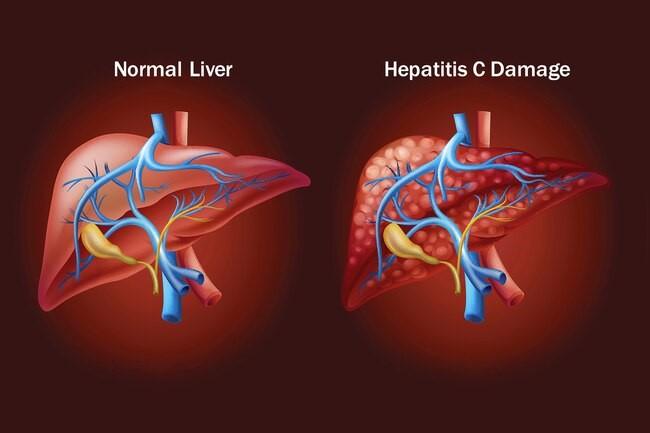Exploring Antiviral Medications, Direct-Acting Antivirals (DAAs), and Personalized Therapy Options
Introduction: Hepatitis C is a viral infection that primarily affects the liver, causing inflammation and potential long-term damage. Fortunately, significant progress has been made in the field of hepatitis C treatment, with the development of highly effective antiviral medications.
This article delves into the latest advancements in hepatitis C treatment, focusing on direct-acting antivirals (DAAs) and personalized therapy options. By understanding the available strategies, individuals can make informed decisions to combat the hepatitis C virus and improve their overall liver health.

Antiviral Medications for Hepatitis C: Antiviral medications play a crucial role in the treatment of hepatitis C. These medications work by targeting the hepatitis C virus and inhibiting its replication in the body. In the past, interferon-based regimens were commonly used, but they often had significant side effects and limited efficacy. However, the advent of direct-acting antivirals (DAAs) has revolutionized hepatitis C treatment.
DAAs specifically target the viral enzymes essential for viral replication, resulting in high cure rates and fewer side effects. The availability of different DAA combinations allows healthcare providers to tailor treatment regimens to individual patients based on their specific hepatitis C genotype and medical history.
Direct-Acting Antivirals (DAAs) and Their Mechanism of Action: Direct-acting antivirals (DAAs) are a class of medications that directly target the hepatitis C virus, interfering with its ability to replicate and spread. These drugs act on specific viral enzymes, such as protease inhibitors, polymerase inhibitors, and NS5A inhibitors, which are crucial for the viral life cycle. By inhibiting these enzymes, DAAs prevent the virus from reproducing, leading to a significant reduction in viral load and ultimately achieving a sustained virologic response (SVR), also known as viral eradication.
SVR is the primary treatment goal for hepatitis C, as it indicates the absence of detectable virus in the blood six months after treatment completion. DAAs have shown remarkable efficacy across different genotypes of hepatitis C and have transformed the landscape of hepatitis C treatment, offering higher cure rates, shorter treatment durations, and improved tolerability compared to previous treatment options.
Personalized Therapy Options: In addition to direct-acting antivirals (DAAs), personalized therapy options have emerged as a significant advancement in hepatitis C treatment. Personalized therapy takes into account an individual's hepatitis C genotype, viral load, liver health, and any underlying medical conditions to determine the most suitable treatment approach. By tailoring treatment to the specific needs of each patient, personalized therapy optimizes the chances of achieving a sustained virologic response and improving long-term outcomes.
Personalized therapy may involve selecting the most appropriate DAA combination, adjusting treatment duration based on viral kinetics, and monitoring liver health throughout the treatment process. Healthcare providers work closely with patients to develop personalized treatment plans that are both effective and well-tolerated, taking into consideration factors such as drug interactions, adherence, and potential side effects.
Conclusion: The treatment landscape for hepatitis C has undergone a remarkable transformation in recent years. Antiviral medications, especially direct-acting antivirals (DAAs), have revolutionized hepatitis C treatment, offering high cure rates and improved tolerability. Additionally, personalized therapy options enhance treatment efficacy by tailoring treatment plans to individual patients. These advancements provide hope for individuals with hepatitis C, offering a path toward viral eradication and improved liver health.
We are associated with experienced and highly skilled medical professionals. We use the latest medical technology available in the world and we provide medical services in collaboration with JCI & NABH Certified hospitals only. Our services include various types of treatment and organ restructuring and transplant.
